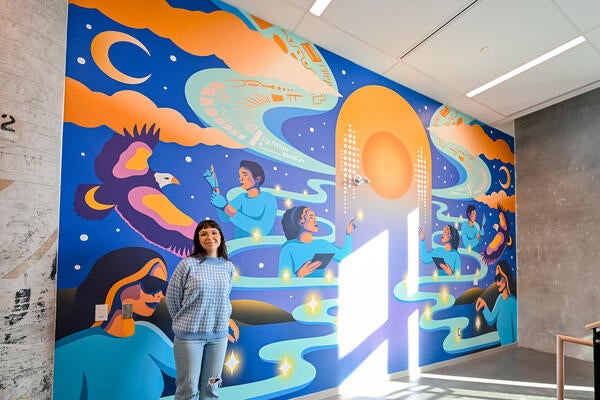
Equinox Summit: What will high school look like in 2030?
Global education experts meet in Waterloo to discuss how to foster creativity and support learning for youth in a rapidly changing world. Public is invited to free events

Global education experts meet in Waterloo to discuss how to foster creativity and support learning for youth in a rapidly changing world. Public is invited to free events
By Staff Communications and Public Affairs
Alumni who have gone on to be entrepreneurs, current students and faculty from the University of Waterloo are participants at the Equinox Summit: Learning 2030, a Waterloo conference drawing education innovators from around the world.
The future of high school is the focus for this year’s summit, a conference put on every two years by the Waterloo Global Science Initiative (WGSI). Founded in 2009, WGSI is a non-profit partnership between Perimeter Institute for Theoretical Physics and the University of Waterloo. The mandate of WGSI is to promote dialogue around complex global issues and to formulate strategies to support a more sustainable future.
The Equinox Summit brings together experts and young leaders to engage in lectures, plenaries and online presentations and to help advise on issues of global importance. In 2011, innovators and visionaries in the area of clean energy gathered to discuss more renewable ways to provide power to a growing population. The Equinox Blueprint: Energy 2030 spells out a way forward on the energy front.
The conference starts on Sun. Sept. 29 with events running until Thurs. Oct. 3. University of Waterloo participants for the summit include:
Summit organizers chose learning, specifically high school education, because global reports show teens have the least engagement in learning.
Everyone is invited to participate. Free tickets and online broadcasts are available for public events.

Read more
Sport and Recreation Management student Diane Choi embarks on co-op term with the Canadian Olympic Committee

Read more
Many Hearts, One Mind by Indigenous artist Alanah Jewell celebrates the act of creation shared by the Land and innovators in our community

Read more
Redefining capstone learning by bringing students, faculty and community partners together to tackle real-world challenges
The University of Waterloo acknowledges that much of our work takes place on the traditional territory of the Neutral, Anishinaabeg, and Haudenosaunee peoples. Our main campus is situated on the Haldimand Tract, the land granted to the Six Nations that includes six miles on each side of the Grand River. Our active work toward reconciliation takes place across our campuses through research, learning, teaching, and community building, and is co-ordinated within the Office of Indigenous Relations.